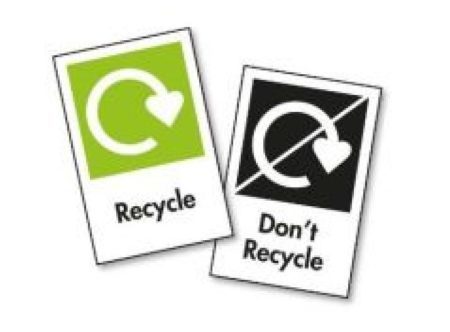WASTE NOT – WANT NOT
Managing the country’s waste sustainably is non-negotiable. The benefits for the environment, society, the economy and individual health are huge but so is the risk if we don’t act quick enough. Our waste is a resource and we all have a role to play in how successfully it can be reused, recycled or repurposed in the future.
The government has pledged that the UK will be at the forefront of global sustainable waste management and is targeting recycling 65% of municipal waste by 2035, including not only household waste but also waste from businesses that is similar in composition to household waste. This is by no means an ‘unrealistic’ target, but there is still a long way to go.
Getting the infrastructure right
Biffa has been helping UK householders and businesses manage the waste they generate for more than 100 years. Sustainably managing waste provides protection to public health, the environment and supports the circular economy by creating secondary raw materials, green energy and reducing carbon emissions. However, further progress is needed nationwide to reach the tipping point where more of our waste is recyclable and recycled and critically the UK lacks sufficient infrastructure for the country to meet recycling targets at the moment.

Biffa is already pushing further having expanded our market leading position by investing £40m in food grade plastics recycling at our recycling facilities in Seaham and Washington in County Durham. Our ambitious commitment set out in our sustainability strategy Resourceful and Responsible will unlock £1.25 billion of investment in green economy infrastructure over the next ten years. But the government also urgently needs to create the right environment to stimulate private investment.
The right stuff
There are two key levers which will help improve sustainable waste management in the UK. First, reducing unnecessary waste and second, designing materials to be fit for recycling.
With our acquisition of Company Shop Group, the largest redistributor of surplus food, drink and household produce in the UK, we have improved our capability to support our customers’ waste reduction and recycling targets, enhancing our provision further up the waste hierarchy and unlocking circular economy innovation. Only a small proportion of the surplus products in the UK are currently redistributed and preventing this from becoming waste is a significant step.
Recycling must be commercially viable not just theoretically or in laboratory conditions. If the material is currently impossible or difficult to recycle, or there is no market demand for it then building the right infrastructure at scale and attracting investment is difficult. These problems are some of the issues the Government is planning to address through the Resources & Waste Strategy and Environment Bill. However, the waste sector and Government need to work closely to ensure that emerging technologies such as chemical recycling and carbon capture technology are supported and ready to support increased recycling.
The only current alternative (aside from landfill) for left over waste once all present recyclable material is removed from the waste stream is to use it as low-carbon fuel in energy from waste plants, and that too only if combustible. This should be seen as a transitional technology which is needed to effectively and sustainably deal with waste until most if not all materials are designed to be recycled. Consumer behaviour matters here too, we need to do more to ensure consumers put recyclables in the recycling bin, not the general waste bin, where it is then effectively lost to the recycling processes.
Clear labelling

The majority of us want to make the right recycling decisions, but labels are confusing, and packaging is complex, causing people to inadvertently put difficult to recycle or non-recyclable items in the recycling bin, which then risks compromising that recycling collection. We are working with organisations like the On-Pack Recycling Label scheme (OPRL) to usher in more effective labelling systems. But we need better education to help support public knowledge and understanding, backed up by clear labelling and guidance. Government policy should support changes to ensure packaging is clearly labelled and consumers can easily choose products which are made from recyclable materials.
At Biffa, we conduct Packaging Clinics with our clients, offering data and insight around these challenges and troubleshooting issues. We have also developed innovative solutions through our state-of-the-art rPET and rHDPE facilities, and recent partnerships with Buxton and Suntory (Ribena) are examples of well-known brands using our technologies to meet their own sustainability targets.
End market support
Most plastic waste is recyclable, or can be made so with better and more standardised packaging design, but without dependable end markets, there is no end customer to collect and sort materials for, and this is still the case with some types of difficult to recycle plastic waste, due to the sheer multitude of types of plastics and plastic packaging formats. The proposed tax on plastic packaging with less than 30% recyclable content from April 2022 and is a great example of end market support from the Government as it creates demand for secondary plastic.
The business of waste
In England, business waste recycling is not currently mandatory and although most big businesses do recycle, some do more than others and there are still a lot of medium, small and micro businesses that don’t do any recycling at all. The Government’s new ‘Extended Producer Responsibility’ scheme targeting packaging waste producers aims to make them cover the costs of managing waste they put onto the market, which should help support more recycling collections and investment, especially for SMEs and Local Authorities.
‘There is still an urgent need for the Government to act swiftly’
Overall, whilst the UK has made a good start with the proposed measures in England’s Resources and Waste Strategy and similar measures in the other UK nations, there is still an urgent need for the Government to act swiftly, in order for us to achieve the ambitious targets we all want to deliver and to accelerate the Green Revolution. However, we are only just entering the second phase of consultations for the Resources and Waste Strategy this year and the recent delay to the Environment Bill, the third since it was first launched in 2018, is yet another frustrating step back. Timely regulation and policy are critical if we are to tackle the UK’s waste challenge successfully and sustainably and the Government must pick up the pace.



Subscribe for free